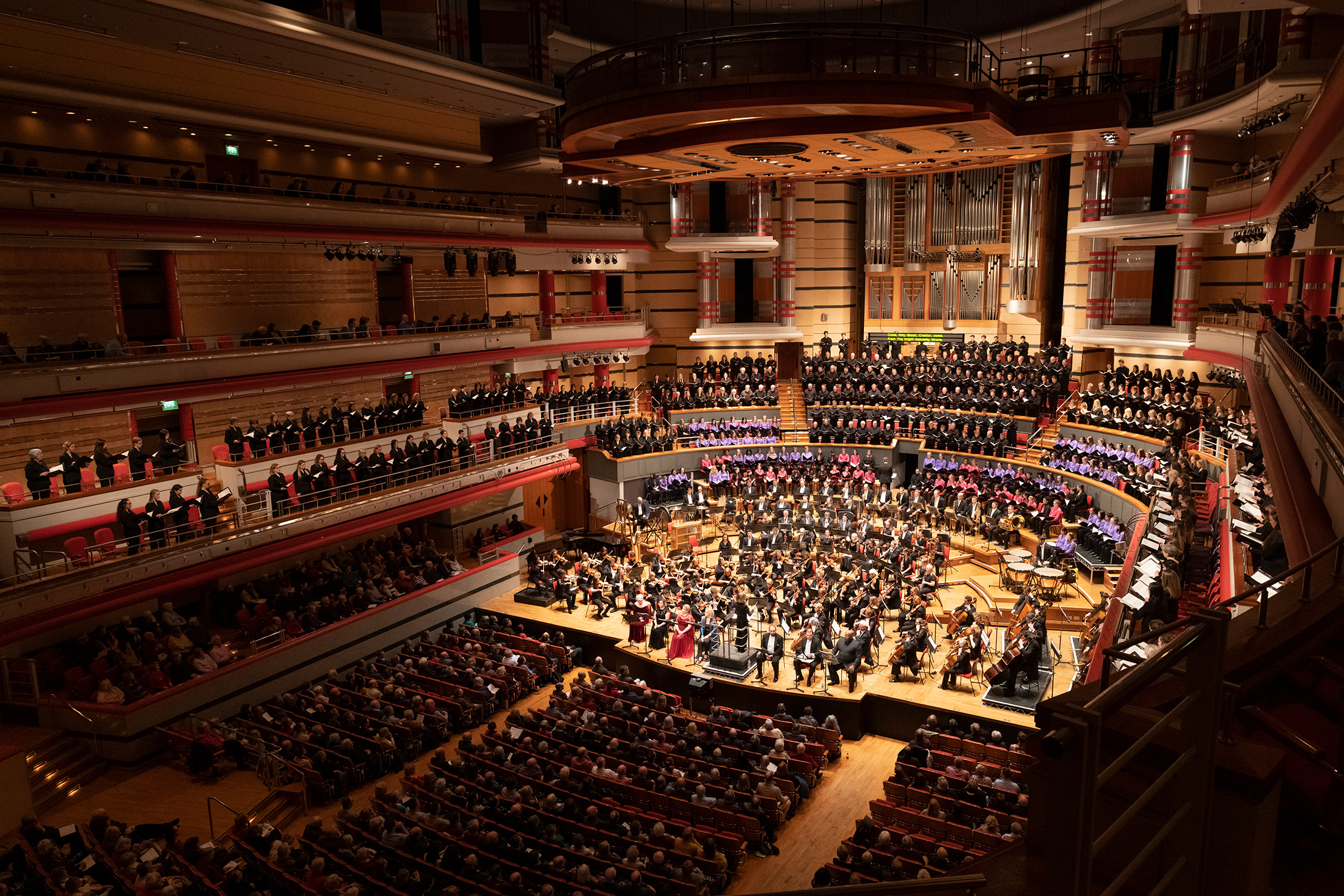Recently classical music writer Charlotte Gardner appeared on Radio 3’s Music Matters to discuss professional criticism and its present demise.
A quick summary for those who either don’t know or wouldn’t otherwise care about professional criticism in the classical music or operatic world.
Simply, there’s little money for content in the print or digital world, a perceived lack of appetite for professional criticism too. Opportunities are drying up. Professional critics are withering and dying on the vine. The world is coming to an end. Bring out your dead.
The irony is that much of this current discourse about the state of music criticism has been triggered by the ENO’s recent announcement inviting new writers (let’s not call them novice – as terminology goes that’s massively condescending) the opportunity to develop their written responses to the operatic form, and for their copy to be published on the ENO website.
In digital marketing terms this is what’s referred to as ‘owned content’: a personal response to an ENO production published on the ENO website. A marketing boon for ENO.
It’s work which is unlikely to flirt with any journalism awards. Because it isn’t journalism. It’s marketing. It’s a way for ENO to get personal accounts of the work they put on. In the process the people doing it learn stuff about how to write about opera. And they’ll probably write about the opera in a different way from those who have hitherto written in (sometimes) codified terms about the art form. The end product is people writing favourably (presumably) about an ENO production so that other potential audience members might feel more inclined to attend said opera. The principal of endorsement or advocacy. It’s exactly the same as Waterstones staff promoting individual books on small cards positioned directly underneath the book they’re recommending. Those recommendations are there to sell books. I don’t hear any book critics wailing about missed opportunities because Waterstones staff are telling potential customers what books they might consider reading.
Charlotte’s blog on the Society of Music website hints at the conflict of interest in ENO’s proposed route. The scheme (like a lot of ENO recent developments) is also a useful punchbag for the issue around professional critics no longer receiving a ‘plus one’ ticket for their criticism work. Dear God hasn’t there been a lot of bleating about that one recently. Critics can’t do their work alone, it seems. A great many other considerably more animated and seemingly self-entitled men and women have said the same.
The irony is that the more people bellow and moan about the state of professional criticism the more ENO’s oft-criticised scheme is given more light. For something that classical music writers are so dismissive of, everyone is doing quite a good job of giving it more oxygen. A scheme that could have been announced in an emailed press release and forgotten about in amongst a slew of others, is known by mostly everyone in the small world I frequent because a lot of people are worried about the loss of a ‘plus one’, and what it means for the lexicon used to describe the art form we all hold so dear.
It’s important to emphasise that Charlotte’s blog isn’t a complete summary of what happened on Radio 3’s Music Matters, only her perspective. As a digital content producer, strategist and editor, I know the pitfalls of the digital medium reasonably well, and appreciate that whilst a discussion in the context of a radio programme sounds balanced, benign (and in some cases banal), when it’s summarised in digital form it can take on a whole other existence, triggering people like me into a rage.
But I take umbrage with one particular element in her blog post, which when I see her at a press event next and we sip on our free glasses of wine together I will challenge her on (assuming there’s sufficient time left in the interval).
The discussion pointed to the threat posed by amateur bloggers, how they don’t have editors to save them from themselves. How amateur bloggers don’t fuel their musical knowledge all day and every day because their non-paying jobs prevent them from doing so.
Whilst there are some extremely knowledgeable amateur bloggers, there’s no adequate substitute for total immersion. Every day as a professional critic I’m talking with artists, attending concerts, listening analytically to recordings, writing concert program notes, and getting on planes to hear what’s interesting beyond my native shores, and the sheer weight of context that brings to every review can’t be equalled by someone with a non-musical day job.
Criticism Reviewed, Charlotte Gardner, 6 November 2019
I do all of these things too. Every day. It’s just that I don’t get paid for all of it.
I am an amateur blogger in the strictest definition of the word. I don’t get money for this blog (well, maybe $30 a month via Patreon but that’s it), and I don’t get money for the podcast either. I left the BBC in 2017 in order to devote more of my content production skills to the classical music world. What I discovered was that it was phenomenally difficult to gain a foothold in the classical music writing world. Many of the outlets relied on a handful of the same people.
Many online publications threw shade on my credentials, quibbled over how I was getting funding to go to international festivals, pointing to anything other than a self-funded trip as evidence of a potential conflict of interest. What I realised a couple of years ago was that the conventional classical music writers world felt threatened by someone like me and so creating and then manning barriers to entry was paramount. The irony is that many of those people who questioned my independence and how it might threaten their precious publication are the same people who travel to international festivals to write about concerts, trips funded by the festivals themselves or PR agencies.
There are gifts (plenty of them), dinners, free drinks, and launch events. Those experiences are there solely to sweeten the classical music writer. You can either avoid those opportunities in order to preserve your precious independence, or you can attend them, have the free grub, mingle with nice people, and then challenge yourself to be just as independent afterwards. I’d suggest that (and will when I next see Charlotte at one of those events), it’s exactly that challenge which has helped shore up my independence and make me a better writer.
‘Plus ones’ are not vital to writing independently about classical music or opera; they’re a gift, or a privilege.
I’ve written negatively about concerts I’ve had free tickets for, and I’ve written positively about them too.
But independent criticism whether its paid for or not, isn’t measured by negative writing nor whether or not you’re writing from emotional starting point. Its (partly) about the mechanics of how that art is produced, in addition to the evidence of whether it was a work of art (ie whether it triggered questions in the reviewer). I write about that too because I’m interested in that – a reflection of how art is helping me develop as an audience member (of which a critic is one type of audience member, one that happens to report on the event).
I didn’t always do that because I didn’t always have the confidence. I started years from an emotional standpoint because I regarded that as my unequivocal truth (which is different from ‘truth’ in the more global sense by the way): writing about how I felt in reaction to something meant that I knew I was being authentic as noone else would have the same reaction as me. That’s where my writing started.
Over time, I grew more confident about acknowledging what I knew. At the same time I recognised that there were a great many people whose music educations were very different from my own. In the past two years I’ve come to realise that there is an undoubtedly two-tier view of music training in this country: outside of the conservatoire system you either went to Oxford or Cambridge or you didn’t.
And when I began to realise that inherent snobbery in the classical music writing world I began to wonder how on earth it was possible that same snobbery couldn’t bleed into everything that was written about it – through editorial choices, word usage, knowledge and expertise and, ultimately, blocking opportunities. Convention reigns and an artform makes itself appear impenetrable because the gatekeepers still insist on making it so.
I was recently invited to attend an opera in Norway. The festival were paying for the travel and accommodation. I’d never been. I was flattered to be asked to go by another journalist. I pitched a review – my first opera review – to a well respected magazine. I read reviews of other operas written by other journalists before I wrote my own. I watched the opera in one performance – it was in French with no English surtitles. And in the airport waiting to go home I wrote my review. I published it on my blog first, alongside the podcast I’d published, after which I sent the review to the magazine editor. I received one set of suggested edits. It was published a month later. I received some money – enough to cover the opera ticket (if I’d had to pay). I don’t really care about the money by the way. And as it turned out, I didn’t really revel in the legitimacy a paid writing gig gave me. It made no difference. What was important was being able to write the copy in a way that suited the publication. And it appeared the money confirmed it: I could.
There is to me little difference between what I do, what others like me do, and what Charlotte does. We are all writers who spend a lot of time advocating the art form we love. Some are better than others. And then there are those who just copy and paste press releases or distribute unchecked gossip desperately trying to convince the rest of us that its news.
Everyone rolls their eyes whenever anyone bemoans Norman Lebrecht’s blog – “That’s just Norman,’ they’ll say with a smile and a wink. No one ever complains about his dubious output. But they’ll happily complain about the amateur bloggers. No one will condemn his errors or his bias; they effectively condone it. Yet if an amateur blogger creates content that compares well to anything a professional writer is churning out, its the delicate classical music writing ecosystem that’s in danger of extinction. There are some in the sector who think that may well be the best outcome.



